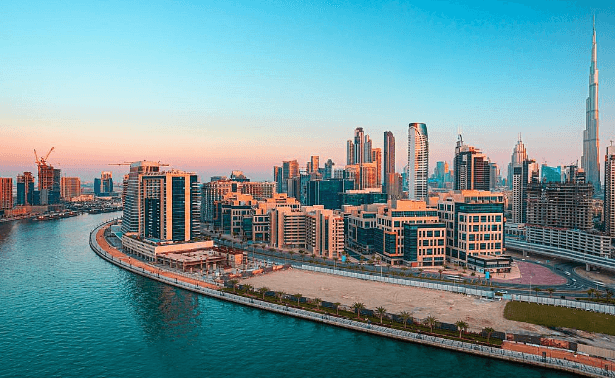What Does Off Plan Mean in Real Estate and Why It Matters in Dubai

In the ever-evolving world of real estate, terms and concepts can often become convoluted, leaving potential investors bewildered. One such term that frequently surfaces is “off plan.” This article aims to clarify the meaning of off-plan properties in real estate, specifically in the context of Dubai’s booming property market. We will explore the advantages and disadvantages of investing in off-plan properties, the unique characteristics of the Dubai real estate landscape, and why understanding this term is essential for anyone looking to invest in the city.
Understanding Off-Plan Real Estate
Off-plan properties refer to real estate that is purchased before it has been constructed. Essentially, buyers commit to buying a property based on architectural plans, renderings, and sometimes a model of the property, without seeing the actual finished product. This type of investment has gained popularity in various markets around the world, including Dubai, where new developments are constantly emerging. Buyers typically make a deposit, often ranging from 5% to 30% of the total cost, with the remainder paid upon completion or in installments over the construction period.
Why Invest Off Plan in Dubai?
Dubai’s real estate market has become one of the most sought-after investment destinations globally. The city’s rapid growth, luxurious lifestyle, and attractive tax incentives make it a magnet for both investors and expatriates. One of the most compelling reasons to invest in off-plan properties in Dubai is the potential for capital appreciation. As the city continues to develop and expand, property values can increase significantly by the time the project is completed. Buying off-plan allows investors to enter the market at a lower price point, potentially leading to substantial returns on investment.
The Benefits of Off-Plan Investments
There are numerous benefits associated with investing in off-plan properties, particularly in a dynamic market like Dubai. Firstly, buyers often have the flexibility to customize their units, selecting finishes and layouts that align with their personal tastes. Secondly, many developers offer attractive payment plans that facilitate easier financial management. Additionally, the potential for capital appreciation is heightened in Dubai, where many projects are located in prime areas, further enhancing their resale value upon completion.
Risks Involved in Off-Plan Investments
Despite the advantages, investing in off-plan properties does come with its set of risks. One of the primary concerns is the possibility of project delays or even cancellations. Buyers are essentially betting on a future that is uncertain, and if developers face financial issues, the project may not proceed as planned. Furthermore, the final product may differ from initial renderings, leading to disappointment for buyers. Conducting thorough due diligence on developers and their previous projects is critical to mitigate these risks.
The Regulatory Landscape of Off-Plan Sales in Dubai
Dubai’s government has established regulations to protect buyers investing in off-plan properties. The Real Estate Regulatory Agency (RERA) oversees the market, ensuring that developers adhere to guidelines that safeguard buyers’ interests. For instance, developers must register off-plan projects with RERA and secure necessary approvals before launching sales. Additionally, RERA mandates that developers maintain an escrow account for off-plan sales, ensuring that buyer funds are allocated explicitly for the project’s completion. This regulatory framework bolsters buyer confidence and helps mitigate risks associated with off-plan investments.
Market Trends and Statistics
According to the Dubai Land Department, off-plan property sales have consistently accounted for a significant portion of the overall real estate transactions in the city. In recent years, off-plan sales have surged, making up around 60% of total property transactions in some quarters. This trend reflects the increasing interest from both local and foreign investors looking to capitalize on Dubai’s ongoing development projects. Furthermore, the introduction of new visa regulations and economic initiatives has further stimulated demand for off-plan properties, particularly in prime locations such as Dubai Marina, Downtown Dubai, and Palm Jumeirah.
Investment Strategies for Off-Plan Properties
Investing in off-plan properties requires a tailored strategy to maximize returns while mitigating risks. First and foremost, potential investors should conduct comprehensive market research to identify emerging neighborhoods and developments with growth potential. Engaging local real estate experts can provide valuable insights into market trends, pricing, and developer reputations. Additionally, investors should consider diversifying their portfolios by exploring various off-plan projects across different locations and price points, minimizing risk exposure. Lastly, staying updated on regulatory changes and market conditions is vital for making informed investment decisions.
Read also: Why Working with a Mortgage Broker in Perth is Your Best Decision for Home Buying
Conclusion: The Future of Off-Plan Investments in Dubai
In summary, understanding the concept of off-plan properties is crucial for anyone interested in the Dubai real estate market. The potential for significant capital appreciation, customization options, and flexible payment plans make off-plan investments an attractive proposition. However, investors must also be aware of the inherent risks and conduct thorough due diligence before committing to any project. As Dubai continues to evolve and attract global attention, off-plan properties will likely remain a prominent feature of the city’s real estate landscape. For prospective investors, staying informed and adopting a strategic approach will be key to navigating this dynamic market successfully.



